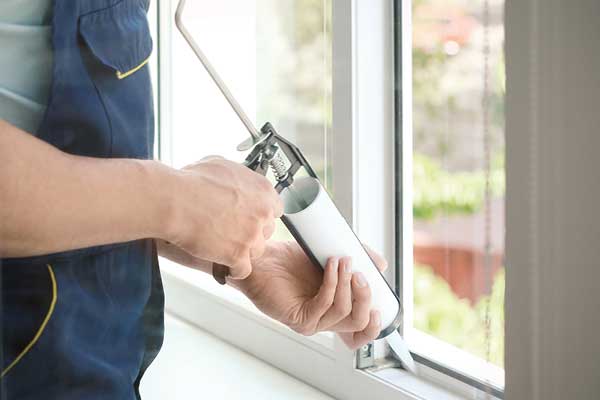Get your house and car ready for cooler temps

Tips for your home
Check for air leaks.
Feel around doors, windows and baseboards for cool air creeping into your home. Caulking windows is an easy way to trap the heat, and it works for other areas like gaps in siding or drafty doors. If needed, add or replace weather-stripping and caulk that is old or damaged.
Drain the water heater.
Flushing the water heater once a year not only cleans it from sediment buildup but can also improve heating speeds, eliminate foul odor from stagnant water and reduce energy costs by cutting down the time needed for the water to get hot. Review your owner’s manual for directions or contact a professional for assistance.
Check smoke and carbon monoxide detectors.
Make sure you test the functionality of your detectors on a regular basis. Be sure to change the batteries in your detectors or replace detectors that are not functioning. It’s important to replace your smoke detector every 10 years and your carbon monoxide detector every 5-7 years.
Check your roof and clean your gutters.
Inspect your roof twice a year (fall and spring) to check for potential issues. Look for:
- Missing, damaged, loose, buckled or curling shingles
- Nails that have popped up
- Metal flashing that has rusted or roof vent pipe boots that have cracked
While inspecting the roof, look at your gutters. Ensure water can easily pass through your gutters before cooler, and possibly icy or snowy, weather arrives. Clogged or damaged gutters can cause water, pests or rodents to enter your home.
Set or get a programmable thermostat and check your furnace.
Program the thermostat to your schedule, such as keeping your home cooler when you’re not home, to help save money on your energy bill. You’ll also want to call a professional to inspect your furnace and make sure it’s in good working order before temps drop.
Winterize your pipes.
Check for leaks or cracks in plumbing as they may get larger with the changing temperatures. Look at pipes in your kitchen, bathroom, laundry or utility room for drips, puddles or moisture. Be sure to remove garden hoses from outdoor faucets as water left in exterior pipes or hoses can freeze and cause pipes to burst.
Tips for your car
Get it serviced.
Before driving conditions turn less than ideal, it’s a good idea to take your car in for a tune up. Confirm the hazard, fog, signal and taillights are working properly. Check that your vehicle’s battery, brakes, belts, spark plugs, cooling and heating are in decent shape. Make sure fluids are topped off and that your tires are properly inflated.
Keep a safety kit handy.
It’s a good idea to have jumper cables, a tire pressure gauge, a tire patch kit, blankets, a flashlight and a phone charger in your car in case of emergencies.
Keep the tank at least half full.
A fuel tank that’s over halfway full reduces condensation, which can prevent your gas line from freezing. It can also help you avoid dirt or sediment build up in your tank from being sucked into your fuel pump. As temps grow colder, a fuller tank can help you keep warm and avoid an emergency if you find yourself stuck in traffic or stranded on the side of the road for a long period of time.
Replace your windshield wiper blades.
You want to replace your blades once or twice a year depending on where you live and the blades’ level of wear and tear. If you live in an area with harsh winters, you may want to consider heated blades, which can last longer in freezing temperatures.
Review your driving habits.
Avoid distractions, put your phone down and pay attention to the weather conditions. You may need to adjust your speed, increase your following distance or plan alternate routes to stay safe.
Watch for animals and pedestrians.
As the days get shorter, you may be commuting around dusk or in the dark. Watch for deer or other animals that are prone to being out at that time. In residential areas, be on the lookout for those walking or running at night.
As the seasons change, so may your insurance needs. Contact your local Horace Mann representative to review your current coverages.